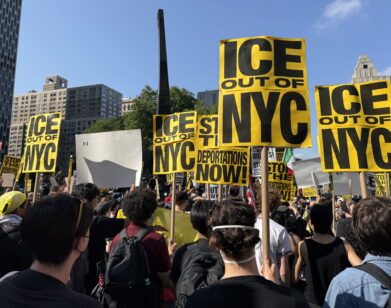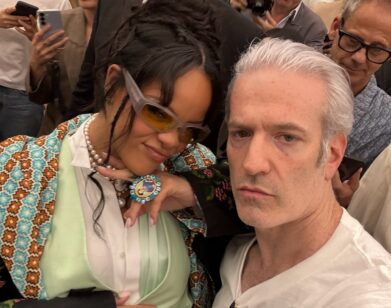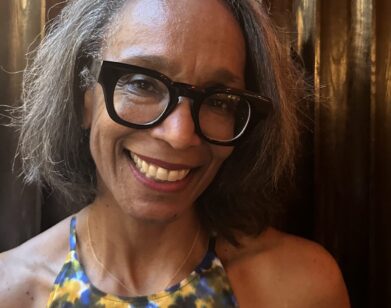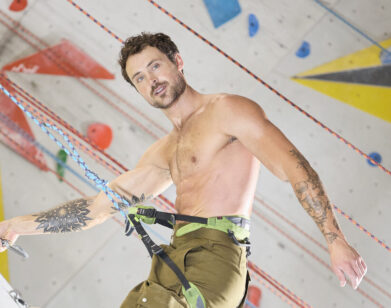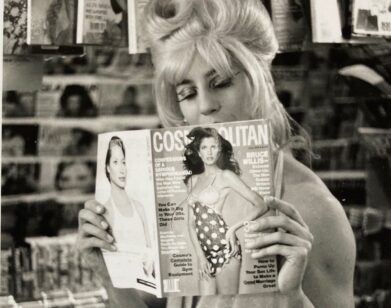ALGORITHM
Meet Aaron Fisher, the Viral Protester Mistaken for a Movie Star
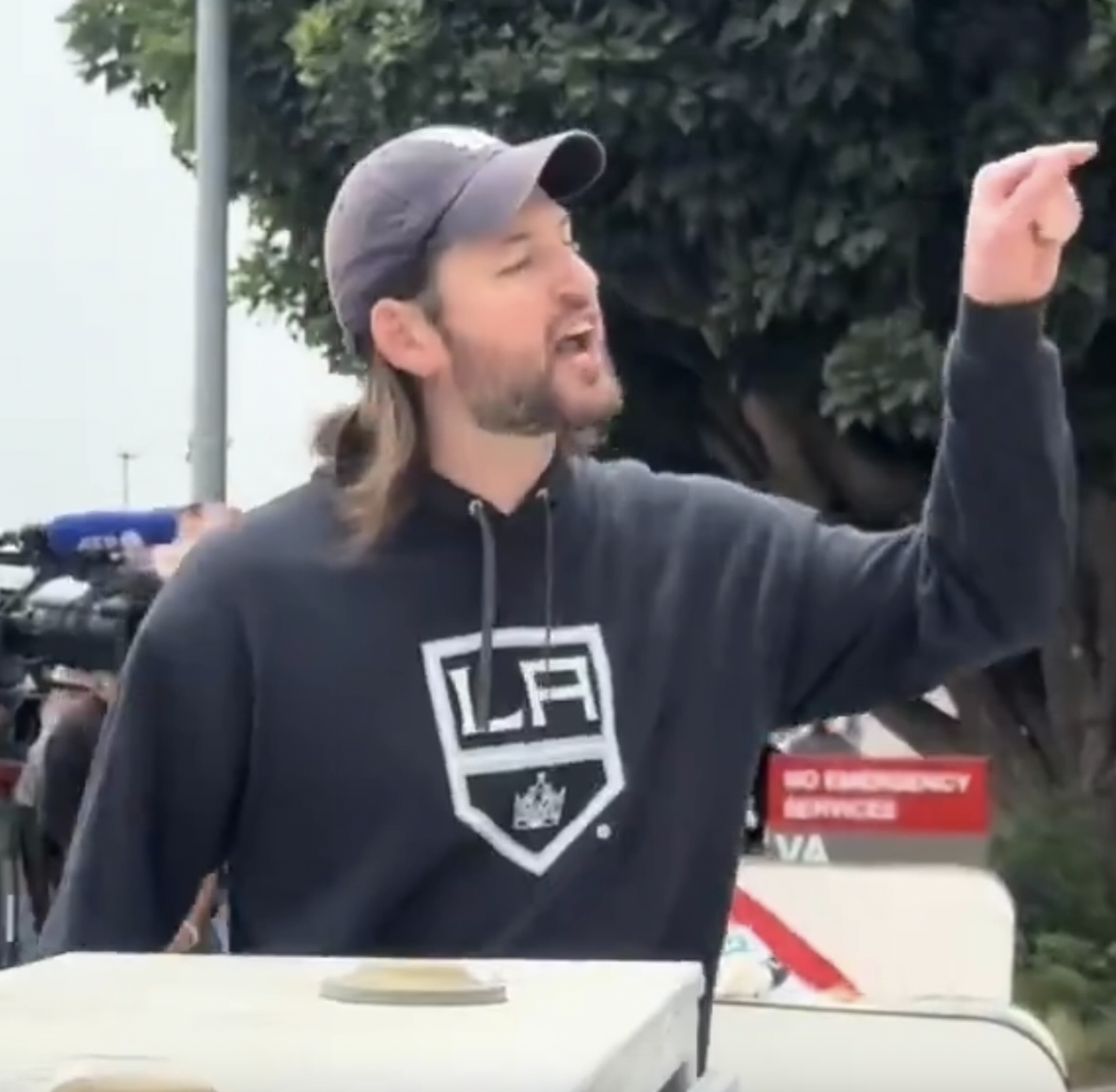
When a video of a man delivering a stirring speech directly to the National Guard during the L.A. protests went viral, the internet did what it does best: got it wrong. Social media quickly misidentified him as Thunderbolts* star Wyatt Russell and flooded the clip with praise. In reality, the speaker was Aaron Fisher, a 35-year-old political strategist and partner at a firm that helps elect Democrats nationwide. The case of mistaken identity spread so widely, Russell’s representatives were eventually forced to clarify: their client was not, in fact, the man in the video. But the fact that it wasn’t an Avenger telling a line of armed soldiers they were on the wrong side of history only makes the moment more resonant. Fisher wasn’t playing a role. He was speaking from the gut, calling out what he saw as a dangerous misuse of power in real time, with real stakes. We called Fisher to hear how it happened, and what it felt like to go viral for speaking truth to power.
———
AARON FISHER: How are you?
BEN BARNA: Good. How are you?
FISHER: I’m good, thanks.
BARNA: To start off, tell me a little bit about yourself. How long have you been living in L.A.?
FISHER: I’ve been living in downtown Los Angeles, in Little Tokyo, for six years. Born and raised in Ohio, but I really fell in love with L.A. when I moved out here. I’m in a great part of town that’s incredibly vibrant and a pretty fun community to be a part of. In terms of background, I’m a partner at a political marketing firm called Statecraft Media, where we work with democratic and progressive candidates up and down the ballot to help them win across the country.
BARNA: Do you see yourself as an activist?
FISHER: I don’t know that I’d use that label. I certainly am somebody who’s been actively involved in politics, both at the consulting level, but also the campaign level. I served as the executive director of the Ohio House Democratic Caucus, so I ran the political arm for the House Democrats for years and was a campaign manager before that. Essentially since I was 10 years old on the picket lines with my dad, who was a union machinist in my small hometown, I’ve been aware of and pretty active in politics. Activist, I guess, would be a fine thing to label me, but I think I’m a little more deeply entrenched in the political world.
BARNA: What’s your take on Trump’s second term so far?
FISHER: Everything I’ve seen has been incredibly disheartening, but not surprising. The Trump administration was very open and honest about what they were going to do, and that meant attacking democratic institutions, it meant going after the queer community and the trans community, it meant going after migrants and immigrant populations in the country. The rate at which this is happening has been a bit surprising, but nothing that’s happening has caught me off guard.
BARNA: What do you make of the ICE-led arrests that ignited these protests?
FISHER: I think he’s got this weird obsession with California, really, the coasts who have rejected him. He so desperately wanted to be accepted all his career but never was in New York, and certainly not with folks here. I think the fact that he’s targeting blue states and cities while ignoring rural communities, many of which also have large populations of migrant workers picking our produce and working hard in red states, shows that he has a chip on his shoulder. He wants to make an example of places like Los Angeles and other big blue areas that have rejected him full-throatedly.
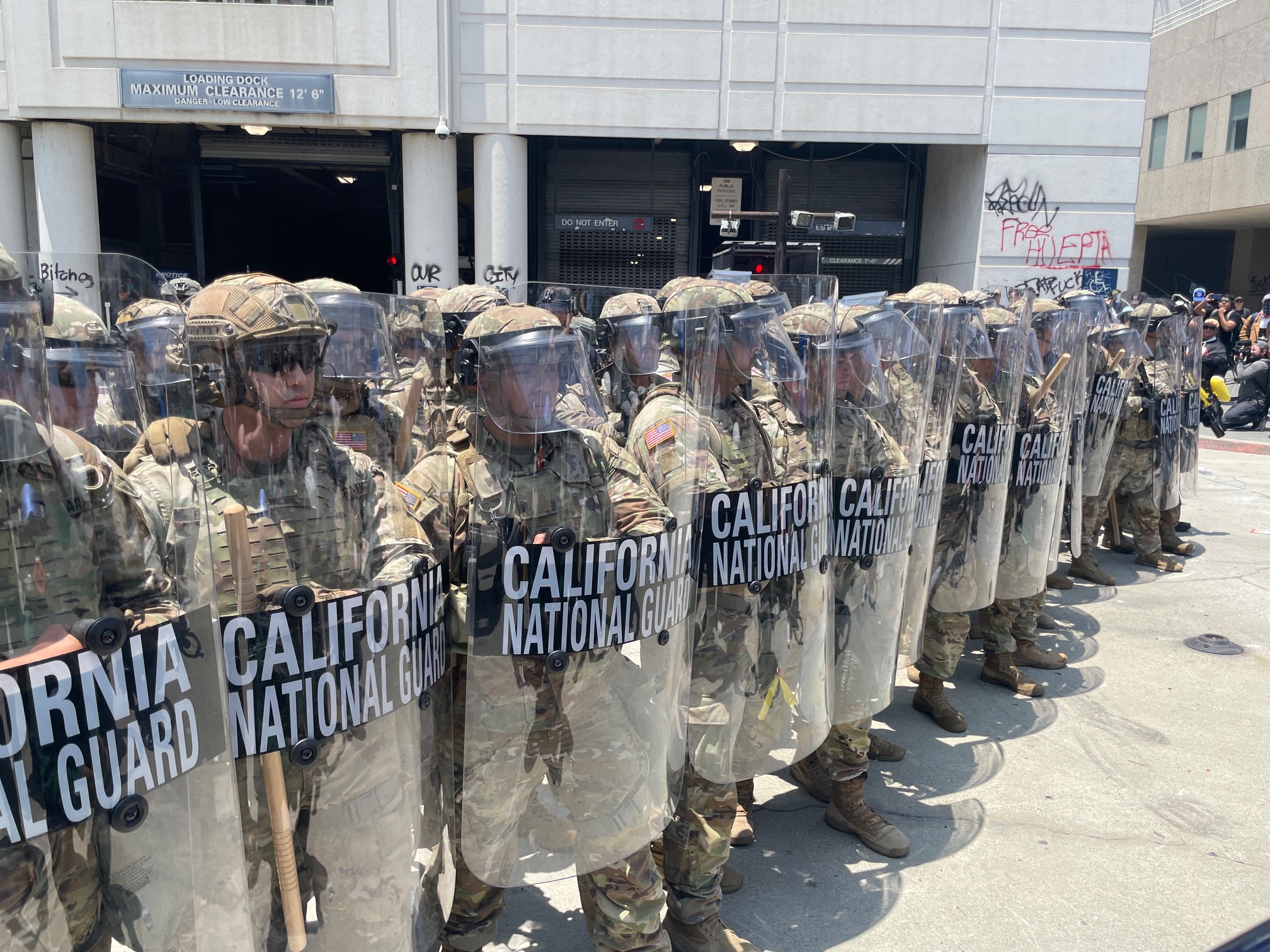
BARNA: For sure. So tell me about Sunday and what led up to you standing up and confronting members of the National Guard.
FISHER: Living where I do, I’m very close to a number of protests and people who are using their First Amendment rights. I live very close to City Hall, to multiple federal buildings, so the community here is very loud and very proud. It’s not uncommon for me to be out protesting peacefully. And I was just incredibly disheartened by the fact that ICE was going into communities like mine in military fatigues with weapons of war, arresting kids, moms, dads, the people who make our economy tick in a lot of ways.
BARNA: Right.
FISHER: It was really the force that was used that was incredibly disturbing to me. Look, I understand there are going to be some criminals who are going to be deported. I’m not against that. But this was not that. These are dishwashers, nurses, students, the people who are productive members of our society, a lot of them trying to actively work through a broken immigration system to be here legally. It was clear that this was an incredible overreach. That led me to think, “I’m going to go out again today.” And it was really the deployment of the National Guard—and I’m getting there and seeing that in person—that I found to be incredibly un-American. And look, Ben, I’m from Ohio. I studied history, particularly the history of my state. I’m well aware of what happened at Kent State during the Vietnam protests when the Ohio National Guard was mobilized and shot and killed innocent kids and protesters. With that information in the back of my head and knowing that this organization has literally been on the wrong side of history, it compelled me to get out there and say something. But nobody was more surprised than me in 24 hours to see that this thing had sort of spread like wildfire on social media.
BARNA: We’ll definitely get to that. Were you scared or intimidated?
FISHER: I think anytime you’re at a protest like that and you have, whether it’s LAPD, the Sheriff’s Department, or anyone with weapons where there’s high tension, you always have that in the back of your mind. We have a long history of violence used against protesters, not only in this country, but particularly in the city of Los Angeles. So yeah, standing there and looking at men and women who had assault rifles, of course it’s intimidating. But I’m well aware of the space that I occupy as a large white guy. I’m 6’7″.
BARNA: Wow.
FISHER: Yeah. I occupy a space where I think that I can speak up and not have to worry as much as some other folks. Later in the day, we were hit with riot shields, tear gas, flash bangs. People next to me were hit with rubber bullets. Luckily, I was not. But peaceful protesters right next to me were. And so when that’s happening, it’s really scary, too. You have a group of people who are there doing what they’re told to be doing, and yet they’re still punished. And it feels like that punishment is happening simply for expressing your First Amendment right, and when that starts to happen, you begin to ask yourself, “Well, what is the next escalation?” Do these non-lethal weapons turn into lethal weapons if somebody on the other side is scared or feels threatened? This is not unique to me, this is every protester out there.
BARNA: What struck me, and I think a lot of people, was how clearly and passionately you spoke. It was powerful, eloquent, and felt like it gave voice to what so many people are feeling. And you said it directly to the National Guard. Where did that come from?
FISHER: Truly, this was adrenaline filled. This was me speaking from the heart. Like I said, I was going because I wanted to show solidarity with my community, and I wanted to help keep people safe if that was needed. But I had no expectations that I was going to get up there and say anything. So when I got there, and again, seeing these weapons, seeing the National Guard, it really lit a fire in my stomach. I did want to have more of a conversation with these people, because I’m well aware that they are following orders. Many of them probably don’t want to be there. I think as somebody who works in the political space and tries to find a way to communicate effectively with people, there was a little part of me that was like, “What do I say to these people so they know that I’m not coming after them directly?” I’m coming after this institution and this highly undemocratic problem. I don’t know if that changes anyone’s minds, but I find that a more effective approach than some alternatives.
BARNA: When you’re speaking to them, are you able to gauge any reaction in the moment, or are they doing their best to ignore you?
FISHER: Yeah. And it wasn’t just during this moment, but other moments throughout the day when others were speaking similar messages to them. Some feel like they’re just there, they’re staring past you. But there are others, I think, that understand the gravity of this situation. And of course, they’re not going to say, “Hey, I get it.” But some of them made direct eye contact with me. Some of them, I felt like there were not nods of approval, but slight nods of understanding.
BARNA: I’m of the opinion that this would have gone viral regardless, but obviously there was the whole Wyatt Russell thing. What was that like? It’s such a strange twist.
FISHER: It really is, and I have thoughts on it for sure.
BARNA: Please.
FISHER: It was my managing partner who’s on the East Coast and was up a bit earlier than me, and he sent me the video and said, “Hey, just checking in, making sure you’re safe. This is really great.” So it sort of started that morning with everyone just not knowing who I was. And then eventually somebody sent me an article and was like, “Hey, they’re attributing it to this celebrity.” First of all, I found it humorous, but also, I’m glad it happened because I think it amplified the message.
BARNA: It’s on Entertainment Weekly.
FISHER: Yeah. Entertainment Weekly reached out and asked me for a quote, and Rolling Stone wrote about it. I was not at all concerned that it wasn’t attributed to me. I can imagine that Wyatt’s PR team probably had a bit of a headache that morning trying to figure out how to respond to this. He got thrown into something that he probably did not want. But I was just really glad that the message got amplified a bit more. These movements work because of the messaging and I think this whole mix-up really helped to get it in front of more people. For that, I’m thankful.
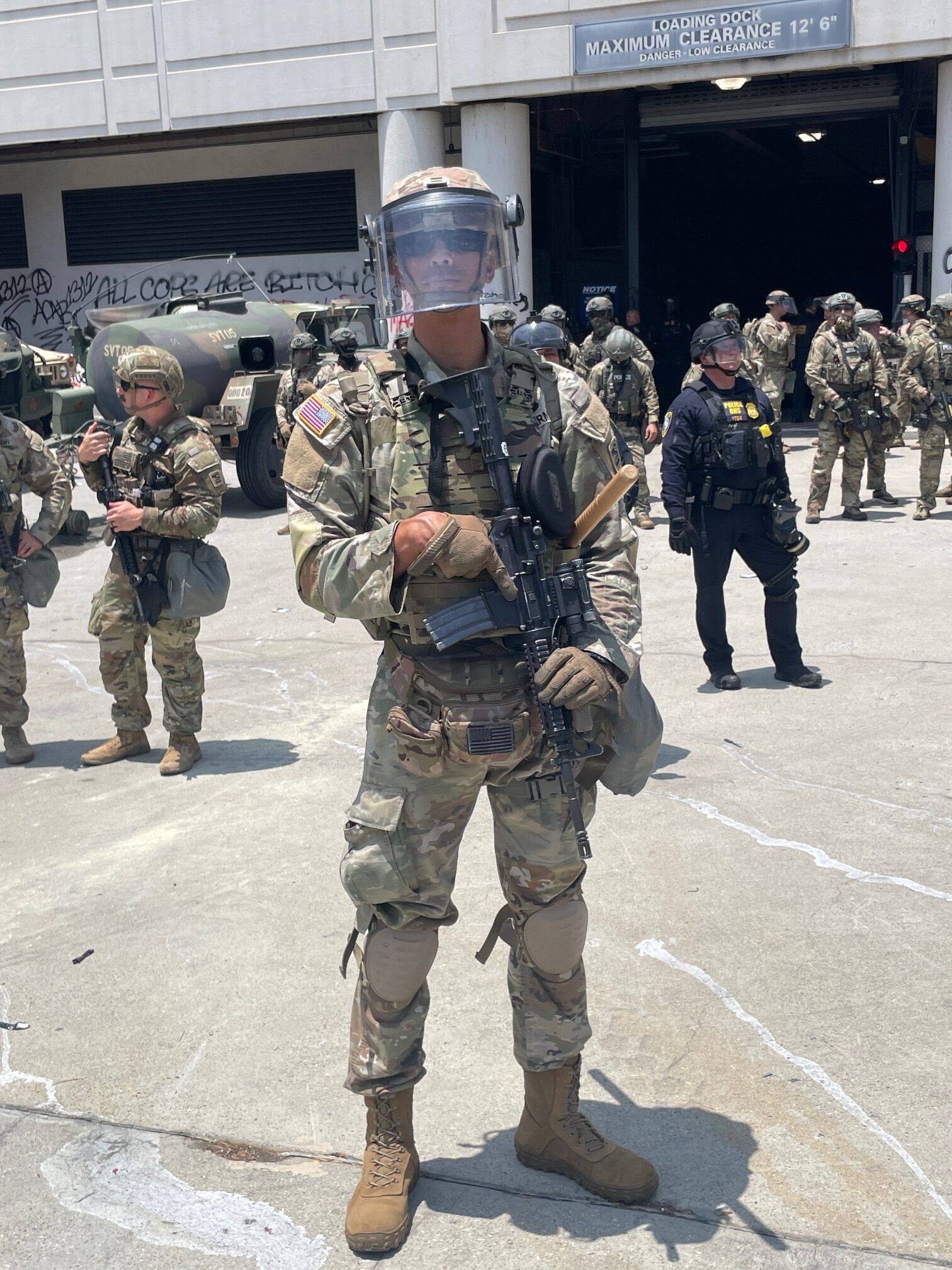
BARNA: Has anyone ever told you that you look like him?
FISHER: No, this is a first. I know who his parents are, obviously, but I wasn’t aware of him as an actor. I don’t think I happen to look that similar to him. He’s got blonde hair. Other than the long hair and the facial hair, I think that’s where the similarities tend to end.
BARNA: It was shot from a distance so I can see where there might be confusion.
FISHER: Exactly. And you know how it is, Ben—you see what you want to see. If you’re excited to see an actor using their platform in a way that encourages you and inspires you, that’s really great. And so you might just want to believe. But it was all very humorous to me. I’ve gotten some comparisons in the past for lookalikes, but never this gentleman.
BARNA: How did people find out who you were?
FISHER: I think because I have a relatively extensive network from my political work, people were reaching out to me and saying, “Hey, is this you?” And then, “Do you mind if I say that it’s you?” Other people were just like, “I know this guy. That’s not Wyatt, that’s Aaron Fisher.” And then from there, people started reaching out to me on social media and I was just like, “I’m not going to shy away from this.”
BARNA: Was there any negativity?
FISHER: There are very few repercussions for me other than some angry MAGA folks in my DMs. I don’t know, there was reporting happening at the same time, where some outlets were still saying it was Wyatt, and then others were saying, “Hey, we found this guy. It’s not the actor.” And then throughout the day, everyone got on board and knew it. It may have been the Entertainment Weekly article, where I gave a statement to them that just set it straight for most people, and then from there it just took off. And you start getting a bunch of followers and DMs and all the stuff that comes along with it.
BARNA: Maybe you’ll be on Dancing with the Stars in a few months.
FISHER: [Laughs] Hopefully not.
BARNA: Alright, cool. I really appreciate your time.
FISHER: No problem. Thanks for all the work you do.
BARNA: I should be saying that to you.

